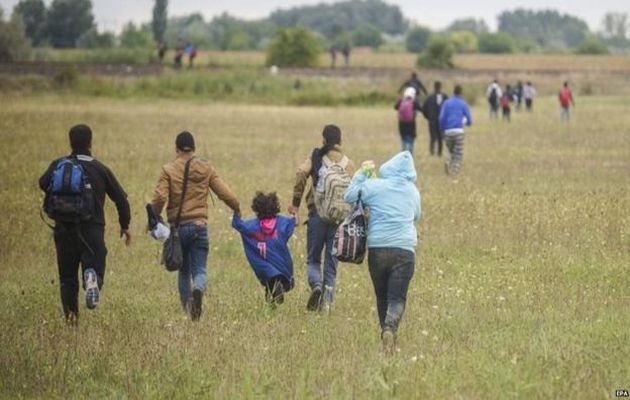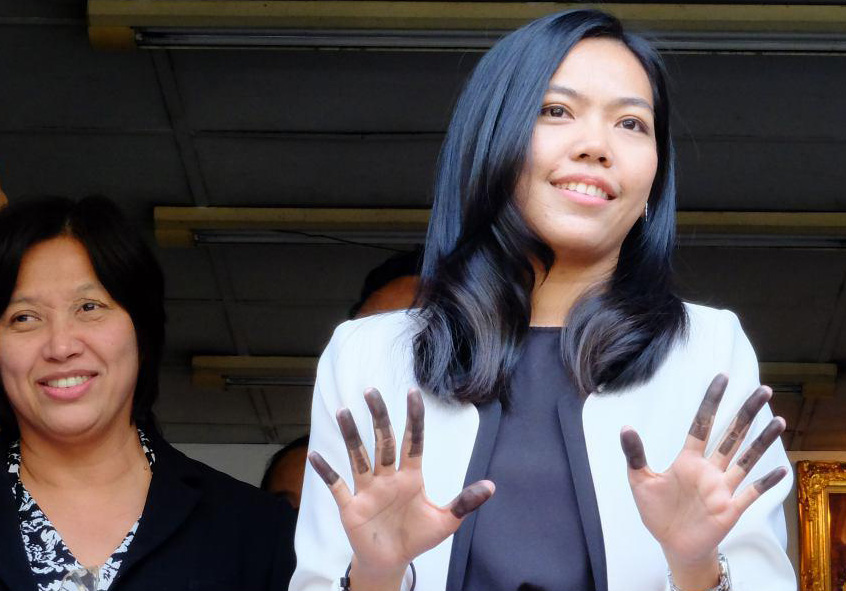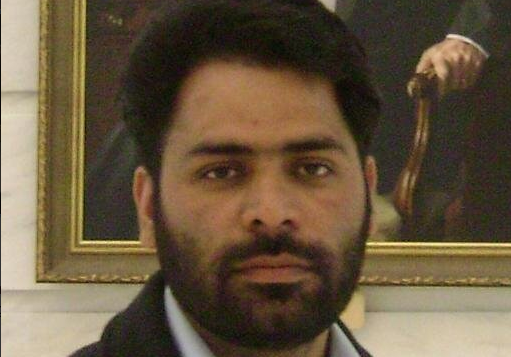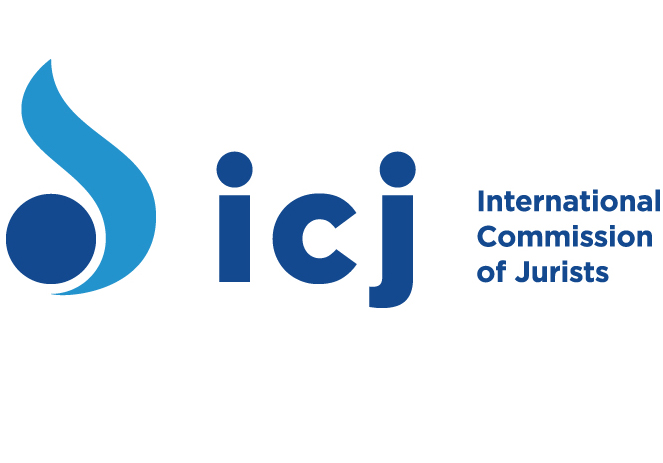
Oct 10, 2016 | Events, News
The ICJ, OSCE and Group 484 are holding a training on migration and international human rights law starting on From 10 to 13 October in Zlatibor (Serbia).
The training has been organised by the Organisation for Security and Cooperation in Europe (OSCE) and the Serbian NGO “Group 484” and will be given by the International Commission of Jurists.
It will focus on international protection of migrants and asylum seekers, access to territory and asylum and the principle of non-refoulement, in light of the current migrants and refugee crisis and drawing from the jurisprudence of the European Court of Human Rights, of the UN human rights systems and from EU law.
The training will be centred on the ICJ Practitioners Guide no. 6: Migration and International Human Rights Law.
serbia-jointtrainingmigrationhr-events-2016-eng (download the agenda)

Oct 7, 2016 | News
The ICJ today expressed its serious concerns over the convictions on charges of incitement and extremism of Tajikistan lawyers Buzurgmehr Yorov and Nuriddin Makhkamov, and their sentencing to 23 and 21 years in prison respectively.
“These convictions, which continue a recent pattern of persecution of lawyers in the country, will contribute to the already poor climate for the independence of the legal profession in Tajikistan,” said Róisín Pillay, Director of the ICJ’s Europe and CIS Programme.
“The ICJ calls on the Government of Tajikistan to ensure that the two lawyers are able to appeal their convictions through a fair process before an independent court,” she added. “It should ensure that criminal prosecution is not used by the executive as a means to limit lawyers in the exercise of their professional duty, and that lawyers do not suffer any reprisals due to their identification with their clients’ causes.”
On 6 October, the two lawyers were sentenced by the Dushanbe City Court on a number of charges, which included incitement to feud, calls for a violent change of the constitutional order and extremist activity.
They were also banned from working as lawyers for five years after serving their sentences.
Buzurgmehr Yorov, head of the Sipar Collegium of Lawyers, was arrested on 28 September 2015. Nuriddin Makhkamov, a lawyer of the same Collegium, was taken into police custody on 22 October 2015.
Both lawyers represented members of the Islamic Renaissance Party of Tajikistan (IRPT) at the time of their arrests.
At the trial, which was closed to the public, with only relatives allowed to attend, the lawyers denied their guilt and argued that the case was politically motivated and related to their defence of IPRT members.
Buzurgmehr Yorov was reported to have testified during the trial that he took up the case not because of a sympathy for the IRPT but because of his professional duty as a lawyer.
These convictions raise significant concerns under international human rights law and international standards on the role of lawyers.
It is a fundamental principle, necessary for the right to fair trial and recognized in international standards on the role of lawyers, that lawyers should never be identified with their clients or their clients’ causes as a result of discharging their professional functions.
The UN Basic Principles on the Role of Lawyers further require governments to ensure that lawyers “are able to preform all of their professional functions without intimidation, hindrance, harassment or improper interference” (Principle 16).
The case also gives rise to concerns regarding respect for the right to a fair trial protected by Article 14 of the International Covenant of Civil and Political Rights, to which Tajikistan is a party.
“These attacks continue a wave of arrests and charges against lawyers in Tajikistan,” said Pillay.
“They create a chilling effect on the proper exercise of professional duties by other members of the legal profession, endangering the right to a fair trial and undermining the justice system,” she added. “The ICJ therefore calls on the Government to take urgent measures to prevent further such attacks on lawyers.”
Contact:
Róisín Pillay, Director, ICJ Europe and CIS Programme, t: +32 2 734 84 46; e: roisin.pillay(a)icj.org
Temur Shakirov, Legal Adviser, ICJ Europe and CIS Programme, t: +41 22 979 38 32; e: temur.shakirov(a)icj.org
Additional Information:
Buzurgmehr Yorov was arrested on 28 September 2015 and initially changed with fraud. Other charges were added later during his pre-trial detention. He was sentenced to 23 years imprisonment on charges of incitement to national, racial, local or religious feud (Article 189 of the Criminal Code (CC)), fraud (Article 247 of the CC), public calls to a violent change of the constitutional order (Article 307 of the CC), public calls to conduct extremist activity (Article 3071 of the CC), forgery, production or sale of forged documents, state awards, stamps, forms (Article 340 of the CC).
Nuriddin Makhkamov was arrested on 22 October 2015. He was initially charged with fraud. Further charges were added during his pre-trial detention. He was convicted on charges including incitement to national, racial, local or religious feud (Article 189 of the CC), fraud (Article 247 of the CC), public calls to a violent change of the constitutional order (Article 307 of the CC), public calls to conduct extremist activity (Article 3071 of the CC).
The IRPT was found to be a terrorist organization by the Supreme Court of Tajikistan in 2015 and banned. Its leaders received long prison sentences in closed trials on charges of terrorism, extremism and attempts to overthrow the constitutional order.
A number of other prominent lawyers have been arrested and convicted in Tajikistan since 2014. Some have been released, others remain in detention, including Shukhrat Kudratov, the lawyer of the former Minister of Energy Zaid Saidov, convicted on fraud and bribery charges in 2015.
tajikistan-yorov-makhkamov-news-web-story-2016-rus (full text in Russian, PDF)

Oct 3, 2016 | News
The government should drop all proceedings against human rights lawyer, Sirikan Charoensiri, including the specious accusation of sedition, which apparently relate to her organization’s representation of 14 student activists peacefully protesting in June 2015, the ICJ and other groups said today.
On 27 September 2016, Sirikan Charoensiri (photo), a lawyer and documentation specialist at Thai Lawyers for Human Rights (TLHR), received a summons from the Thai Police following accusations that she violated Article 12 of the Head of National Council for Peace and Order (NCPO) Order 3/2015, prohibiting the gathering of five or more people for political purposes, and Article 116 of the Thai Criminal Code, a ‘sedition’-type offence.
According to the summons, the accusations are made by an army officer, Lieutenant Colonel Pongsarit Pawangkanan.
Sirikan Charoensiri received the summons, dated 20 September 2016, when she returned to Thailand after attending the 33rd Session of the Human Rights Council in Geneva where she conducted advocacy on the human rights situation in Thailand on behalf of FORUM-ASIA and the ICJ.
Sirikan Charoensiri did not receive an earlier summons, dated 14 September 2016, the police claimed had been sent to her apartment, as she was not home at the time.
Sirikan Charoensiri has already been charged with two offences under the Criminal Code of Thailand: “giving false information regarding a criminal offence” and “refusing to comply with the order of an official” in relation to TLHR’s provision of legal aid to 14 student activists – the new summons appears to relate to the same case.
“The army’s accusation that Sirikan Charoensiri has violated the frequently abused sedition law with its extremely serious penalties and risk of a military trial is indefensible and must be withdrawn immediately,” said Wilder Tayler, Secretary General of the ICJ.
“The fact that the authorities have made these accusations more than one year after TLHR’s clients were charged with sedition in the same case suggest the accusations have been made in retaliation for her high-profile national and international human rights advocacy since the military coup,” he added.
The other groups who signed the statement are: Human Rights Watch, Amnesty International, Asian Forum for Human Rights and Development (FORUM-ASIA), the Observatory for the Protection of Human Rights Defenders (an FIDH–OMCT partnership), Protection International (PI), Lawyers’ Rights Watch Canada (LRWC), Fortify Rights, and the International Service for Human Rights (ISHR).
thailand-sirikan-charoensiri-conviction-news-press-releases-2016-eng (full text in PDF)
thailand-sirikan-charoensiri-conviction-news-press-releases-2016-tha (Thai version, in PDF)









